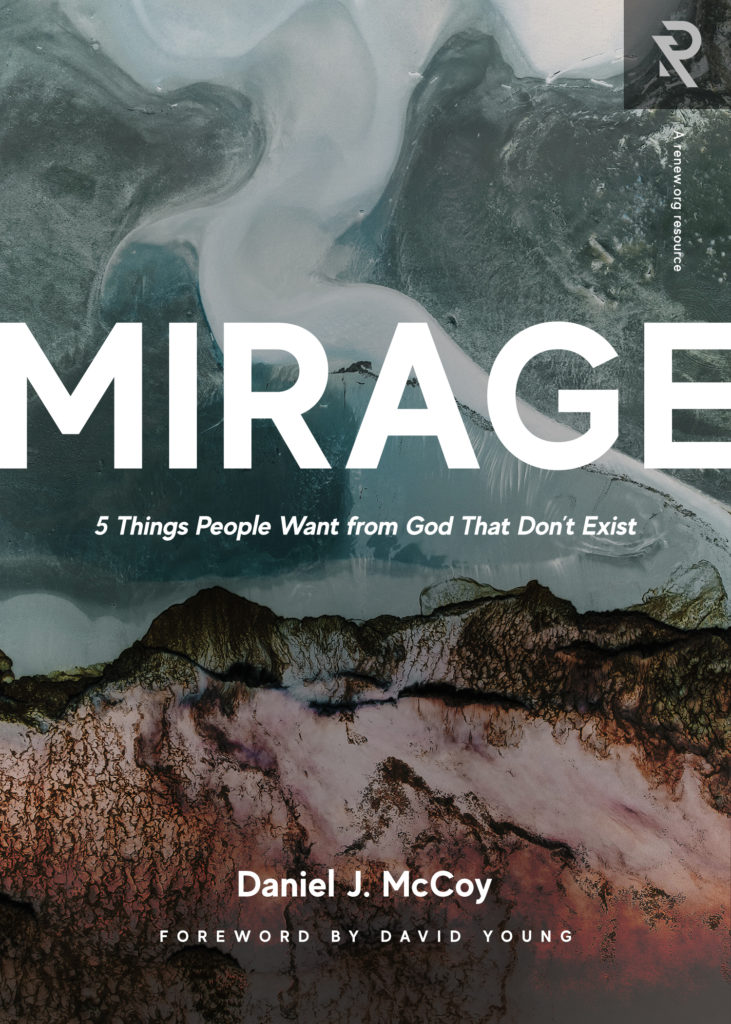
Freedom in Christ: Discerning True Freedom from Its Counterfeits
Amid counterfeit freedom, we need freedom in Christ. Although we naturally want freedom to do whatever our impulses tell us we want, such unrestrained “freedom” often leads us to a type of slavery, where we become addicted to more and more of what won’t actually satisfy us. By trusting and following Jesus, we are set free from the power of enslaving sins and addictions.
We all crave freedom. Freedom to do what we want to do and be what we want to be. Freedom to move about. Freedom in the relationship. In fact, freedom is how both political parties get their votes: by promising freedom and by warning of the freedoms lost if the other party gets in power. In a post-Christian culture, freedom edges toward the front as being one of our most sacred values. Not surprisingly, since we in the West pride ourselves as being some of the freest people on the planet (a historical fact for which I’m very grateful), any threats to our freedom are met with 1776-era rifle-like resolve.
Credit cards set us free, right? Take it to the mall—new clothes. Take it to Home Depot—new drill. Take it to Best Buy—new 70” flat screen TV. Take it to Ashley Furniture—new dining room set. Amazon—click, click, click, two-day shipping. Credit cards set us free to buy whatever we want, whenever we want it.
“We all crave freedom. Freedom to do what we want to do and be what we want to be.”
Question: Are credit card addicts really free? Free to use it, yes. But . . . truly free? I may be reminded by monthly statements—then phone calls—that my debt is mounting. Yet by then, I have come to to need that new gadget or garment. Perhaps I can’t afford it, but that’s not the problem I’m obsessing over. The problem is that I’ve got to have it. So I continue to swipe, swipe, swipe. Because I’m free to use it. But am I free while I’m using it? That’s a different question.
Maybe you’ve got a shopping addiction. Drug addiction. Porn addiction. Eating addiction. Explosive anger addiction. Cussing addiction. Gossip addiction. Free to do all of the above, yes. But, all the same, not so free, are you?
We never seem to be as free as we want to be. Do you know what we really want? We want to be as free as the Herods. If there’s a group of people in the Bible who are most free to do whatever they want—whatever their imagination tells them might be fun—it’s the Herods. So Herod goes ahead and divorces his wife and marries his niece, who is also his brother’s wife. Why not? Herodias moves in, and brings her daughter with her, a girl named Salome.
“Do you know what we really want? We want to be as free as the Herods.”
Think chess: In this story, you’ve got a king, a queen, and a pawn. First, the king. Now, can you imagine anybody telling the king—telling the “Law”—that what he is doing is unlawful? And all because of something as personal as sexual sin! Sounds especially foreign in our culture, where most people’s response is to ask, “You mean there’s such a thing as sexual sin?” People figure that whatever you want to do with whomever you want to do it is totally fine. If it feels good, just do it. But John the Baptist says differently. He looks at the king and says, “That’s sexual sin.” The king says, “What are you talking about? I make the laws around here.” John the Baptist says, “Nope, what you’re doing is unlawful,” which of course implies that there must be a Law higher than our laws.
Enter the queen. John the Baptist upsets the wife way more than he upsets Herod himself. In return, day and night, Herodias fantasizes about how she can get John the Baptist killed. Her chance comes when her daughter makes her entrance:
But an opportunity came when Herod on his birthday gave a banquet for his nobles and military commanders and the leading men of Galilee. For when Herodias’s daughter came in and danced, she pleased Herod and his guests. And the king said to the girl, “Ask me for whatever you wish, and I will give it to you.” (Mark 6:21–22)
“Hooray!” says Herod. “I get to see my half-brother’s ex-wife’s daughter and the daughter of a different half-brother’s daughter dance!” And it isn’t your wholesome do-si-do barn dance. Suffice it to say that the dance is so provocative that Herod is overwhelmingly pleased. So pleased that he offers the girl whatever she wants.
“Day and night, Herodias fantasizes about how she can get John the Baptist killed.”
Salome’s probably twelve to fourteen years old. What would a girl her age want from the king? Strangely, she doesn’t answer. Instead, she walks out. Her mother is waiting.
And she went out and said to her mother, “For what should I ask?” And she said, “The head of John the Baptist.” And she came in immediately with haste to the king and asked, saying, “I want you to give me at once the head of John the Baptist on a platter.” And the king was exceedingly sorry, but because of his oaths and his guests he did not want to break his word to her. And immediately the king sent an executioner with orders to bring John’s head. He went and beheaded him in the prison and brought his head on a platter and gave it to the girl, and the girl gave it to her mother. (Mark 6:24–28)
Okay. Now, in the chess game, who’s the king? Herod. Who’s the queen? Herodias. Who’s the pawn? Whose dance so delighted Herod? Whose request so relieved Herodias? That would be Salome. Salome’s the pawn. She’s the enablement of both parents’ obsessions. Just look at her—throwing herself before a lusting group of drunks. She’s an object of pity even though, yes, she was the one who ordered the platter. She’s merely a pawn.
“Now, in the chess game, who’s the king? Herod. Who’s the queen? Herodias. Who’s the pawn?”
Those Herods, I tell you! Typically, you don’t steal your brother’s wife (maybe somebody else’s wife, but not your brother’s wife)—the Herods do. Typically, you don’t marry your niece—the Herods do. Typically, you don’t chuckle while your drunken friends lust after your step-daughter— the Herods do. The Herods do whatever they want. So . . . the Herods are completely free, right?
Your friends who are sleeping around: Completely free, right? Classmates getting high and needing the next fix: Completely free, right? Your friends looking at porn or sending each other porn: Completely free, right?
So who was the pawn again? Salome. And yet: Is the king really free? Not married to a woman like that, he’s not! And just look at the guy’s untamable lusts. He’s a slave to his lust. Is the queen really free? The lady can’t even see straight, she’s so angry. She’s so angry she gets excited about seeing the head of a prophet on a platter. I don’t know what you call that, but it sure isn’t free.
There’s a king, a queen, and a pawn? Nope. There’s a pawn, a pawn, and a pawn.
Jesus answered them, “Truly, truly, I say to you, everyone who practices sin is a slave to sin.” (John 8:34)
“A slave to sin.” True freedom isn’t doing whatever you feel like doing. No, doing whatever you feel like doing all the time is how you become a slave. Learning to say no to what is shameful is not giving up your freedom; rather that’s called keeping your freedom. Telling yourself no is how you stay out of slavery.
Freedom in Christ: “Truly, truly, I say to you, everyone who practices sin is a slave to sin.”
You cannot find liberation in an enslaving capitulation. You may want freedom through sin, but it’s a mirage. Freedom through sin is a non-thing, and as such, it will disappoint every time you try it.
I got sick a few years ago on Christmas Eve. As I’ve done with numerous moving events in my life, I wrote a song about it. And it has everything to do with true freedom. This song is meant to be sung to the tune of “Rudolph the Red-Nosed Reindeer.” It’s called “Daniel the White-Faced Monster.”
While the tree lights are gleaming and children are dreaming
Something is funny down deep in my plumbing
Allow me to recall the most moving Christmas Eve of all
I feel rumbling but not from the roof
Pitter patter from inside
Strange sounds but not reindeer hoofs
My tummy’s going for a ride
Something is coming real fast
But I don’t think it’s Santa Claus
Instead I think I’m discovering
An exception to gravity’s laws
So that groggy Christmas Eve
My food came back to say
You wondered if your food was cooked
You can have a closer look
Then all my dinner came back
As it shouted out, “We’re free!”
Run away from the white-faced monster
Jump into the swirling sea
“Then all my dinner came back / As it shouted out, ‘We’re free!'”
Matching the shade of color
Of the toilet by which he lay
Filling up stuff like Santa
Chunky in a different way
And as the last remnant left my stomach, I felt free. Free from the junk that had awakened me at midnight, first hoping that it was nothing, then finally—once the discomfort passed a particular threshold—just hoping to get it over as soon as possible. That, I suppose, is the same way with enslaving habits: you hope it’s nothing until it gets bad enough that you’re finally ready to be free of it. That, I repeat, is freedom.
This, I must stress, is freedom’s opposite: “Like a dog that returns to his vomit is a fool who repeats his folly” (Prov. 26:11).
The fool feels free. But the glutton becomes a slave to his gut. The fool finds himself chained by his own unrestraint. The proverbial wild duck who feeds on barnyard food for an hour, then a week, then the summer, and so on finds himself too heavy to join the duck formation when they fly back overhead. Though first he longs to rejoin them, eventually he stops even noticing when they fly overhead. It may seem that freedom shouldn’t feel like death, but a death of some kind needs to happen for the self to fly free once again.
Freedom in Christ: “The glutton becomes a slave to his gut. The fool finds himself chained by his own unrestraint.
In C.S. Lewis’s book The Great Divorce, men and women in hell take a bus ride to heaven for the day. In heaven they are jolted by the brilliant reality—light so real they have to squint and grass so real it is hard to walk on without wincing.
One of the people from hell comes with a red lizard perched on his shoulder. The lizard whispers into his ears, and sometimes the human tells him to be quiet, while other times the human smiles wickedly. The lizard’s name is lust.
An angel comes near and asks the human, “Would you like me to make him quiet?”
“Of course I would,” returns the human.
“Then I will kill him,” says the angel.
“Oh—ah—look out! You’re burning me! Keep away!” retreats the human.
The angel says, “Don’t you want him killed?”
He responds, “You didn’t say anything about killing him at first. I hardly meant to bother you with anything so drastic as that.”
“It’s the only way; shall I kill it?”[1]
Freedom in Christ: “It’s the only way; shall I kill it?”
Back and forth, the human offers all kinds of excuses— he is not feeling well that day, perhaps he should consult his doctor back home first, and so on—while the angel keeps returning, “May I kill it?”
The human begs, “Why are you torturing me? If you want- ed to help me, why didn’t you kill the thing without asking me—before I knew? It would be all over by now if you had!”
And the angel says, “I cannot kill it against your will. It is impossible. Have I your permission?”
The human cannot experience both the relief of conquered sin and the thrill of lust. It’s sin as master, or sin as mastered. It’s hell or heaven. It’s nothing an angel can decide for him; it’s a decision he must make between two mutually exclusive options. Liberation via enslaving sin simply does not exist, and as such it is not one of the options.
Make it personal for yourself. What sins have you by the throat? You may be free to do those sins, but you aren’t free. What sins have promised you freedom but have only enslaved you to where it’s become impossible not to do them when the conditions are right? What sins have deposed you from alive human to Pavlov’s dog? What sins are moving you about like pieces on a chessboard, wiping out the things you truly care about? Aren’t you tired of what your sin does to you and yours? Don’t you long to be free?
If so, then listen to Jesus’ words in John 8:34–36:
Jesus answered them, “Truly, truly, I say to you, everyone who practices sin is a slave to sin. The slave does not remain in the house forever; the son remains forever. So if the Son sets you free, you will be free indeed.
Freedom in Christ: “If the Son sets you free, you will be free indeed.”
Jesus says if you want to be free, He’ll set you free from your sin. Sounds good, right? Yes. Then will you allow Him to kill it?
[1] C.S. Lewis, The Great Divorce (San Francisco: HarperSanFrancisco, 2001), 106–110.
Excerpted from Daniel McCoy, Mirage: 5 Things People Want from God That Don’t Exist (RENEW.org, 2023).









